A project that I have embarked on, and can say only positive things about, is a project of living Integralism. Integralism is a word which is thrown around on the right with some frequency, although there is an opacity to the term which both aids and hampers it. To understand what a living Integralism means, we should first work on defining the term, and then look to the demands it makes on individuals as well as political movements or structures. For all of the talk about and interest in our spheres of enchantment, I have not seen anyone attempt to meaningfully mix these personal, social, and political concepts.
Integralism, at its core, is an assent to the idea that the claims made by the Church are real, that we truly live in a reality which reflects those claims, and that there exists no reality outside of the purview of the claims made by the Church.
In the political sense, Integralism makes claims on the way political movements and structures ought to look and behave, the way they ought to treat people and the language they ought to use. Here, the scope of interpretations is quite large, and spans a gambit that runs all the way from Adrian Vermuele’s Based Administrative State, to the medieval worldview of Christendom articulated by Andrew Willard Jones, to the localist parallelism of Marc Barnes and New Polity.
The basic realization that the purview and authority of the church extends into every realm of our lives is not, however, a claim that is fundamentally political; rather it is a claim that is political precisely because it is fundamental. In this sense, Integralism makes demands on the individual living in secular liberal democracy that it might not make, or might simply not be noticeable, in, say, Christendom, or in another society where the basic fabric of relationship and psychology reflects the supernatural claims of the Church. Integralism’s demands on the individual, when put into practice, constitute what we might call a living Integralism. My approach to deliberately cultivating a living Integralism might be seen as silly by someone deeply immersed in a longstanding tradition and steeped in a culture tied intimately with mysticism and the supernatural. In the words of Ernst Jünger, however, my evil star had fated me to be born at a time when only the precisely calculable was in fashion. So, for me, this is a serious project, and one I will invite you into.
Conscious reflection on what a living Integralism means came first after a conversation with a close friend of mine. We met in a bar to see a local band play and chatted on having bumped into one another earlier that day in line for Confession. Smiling, he said “it’s just crazy how you really can feel the weight lifted from your shoulders after Confession. It really lets you make peace with yourself.” “Yes,” I replied, “it’s almost like it’s real.” Of course I was smiling too, and his eyes went wide. In a moment, we both understood that the way we had been discussing- even conceptualizing the sacrament was in a way which was not sacramental, not integral. We were expressing delight in the idea that something the Church taught happened to map onto our human experience- as if there was any other option! It’s easy for us to forget, or to never genuinely develop, the sense and appreciation of sacramental life.
I believe that the modern quest for authenticity, starting really with Rousseau but likely found in nascent form in the founding moderns like Machiavelli, Hobbes and Locke, even if they wouldn’t admit it, comes from a life divorced from the sacred, the sacraments. Cultivating a return to the sacred, a life lived which looks in awe upon eternity and our connection to it, is then key to returning to an authentic life. The best writers and the true leading men of the postmodern era have recognized this alienation from the transcendent and have confronted it.
The last gasp of any public articulation of sacrament died at the hands of democratic man with the total defeat of social conservatism, Christianity, in the so-called ‘gay marriage’ debate. At the time, Sir Roger Scruton attempted this very defense.
“And the world of vows is a world of sacred things, in which holy and indefeasible obligations stand athwart our lives and command us along certain paths, whether we will or not. It is this experience that the church has always tried to safeguard, and it is one that has been jeopardized by the state, in its efforts to refashion marriage for a secular age… Another way of expressing this point is to say that vows, at least of the relation-forming kind, have a sacramental quality. Sacred beings are present at their inception and oversee their course.”1
Scruton deserves credit for not satisfying himself with utilitarian, nationalistic or mechanistic explanations of marriage, but there is an inescapable weakness in his articulation nonetheless, and it comes from its self-consciousness. Scruton knows that far fewer of his readers will be comfortable or familiar with this kind of argumentation, this method of serious thinking, and his shakiness is apparent in the trepidation with which he spells out sacrament- pressured even to include in the next line, which I have dropped, a warning that among even certain Christian circles, the proper understanding of marriage as sacrament has been lost.
How do we articulate or live with a genuine sacramental spirit? How do we realize a genuine conception of ourselves as existing inside of a world where soul and spirit are as real as the walls around our hearths? The existentialists of the 19th and 20th centuries ran up against exactly these questions; though many of them were so thoroughly thrown off the trail by the alienation and idealization of man from religion produced by liberalism that they never recovered a sense of the sacred and spent their lives driving caustically at the wall of politeness and performance constructed by modernity. I'm thinking now of Nietzsche, who embodies this in its most profound form, and Camus who is its most accessible. Sartre, perhaps, its lowest. A special place among them should be given to Kierkegaard, their first, who identified authentically lived faith, Christian faith, as the way to reconcile the soul with the world.
Jünger, whose works are transfixed in my mind, came up against this dilemma many times over the course of his life. His soul was pulled deeply into these questions, and we have much to learn from his observations.
"A person scraping by, if not in an actual wasteland then in a wasted [spiritually dead] zone such as an industrial city, to whom a mere glimmer, a brief whiff of the immense power of being is imparted- such a person begins to sense that something is missing in his life. This is the prerequisite for him to start searching. Now it is important that it is the theologian who removes the scales from his eyes, because only in this way will the seeker have any prospect of reaching his goal. All other faculties, not to even mention the merely practical ones, would only send him off chasing mirages.”2
It's important to note here that Jünger does not identify the theologian as a viable source of understanding, but the only one capable of orienting man in the direction of where knowledge of his being truly lies. This can only be the case if what the Church has to say about our being is true. Before The Forest Passage, in The Peace, Jünger tackles man’s preeminent problem in the wake of what will be the end of the second world war; nihilism, and its overcoming. Jünger identifies the Church of Europe as the institution to do so.
“Within it [the Church] is preserved the greatest sum of faith that yet survives. Amidst the universal conflagration and in the maelstrom of nihilism it revealed itself as a power which still protected the weal of numberless persons, not only from its pulpits and altars, but in the cathedrals of the intellect, in its doctrine and in the aura which surrounds the faithful and does not forsake them even in the hour of death. New martyrs bore witness for it. Mankind had to learn that in the midst of the catastrophe none of the subtle systems and none of his teachings and writings could give him counsel — or at least only for ill. They all lead to murder and the cult of power. On the other hand in the whirlwinds of destruction, the truth of the great images of Holy Scripture became ever clearer — of its commandments, promises and revelations. In the symbols of the divine origin of the world, of the creation, of man's fall, in the images of Cain and Abel, of the flood, of Sodom and Gomorrah and of the tower of Babel, in the psalms and in the prophets, and in the truth of the New Testament which transcends the base laws of the realm of terror — in all these is manifested to us the eternal framework which is the foundation of human history and human geography.”3
Certainly, one figure who influenced his thinking was Claus von Stauffenberg, whom we might best understand as one of Jünger’s New Martyrs, and in whose association Jünger wrote The Peace. Stauffenberg himself might best be described as an Integralist. Stauffenberg discussed his political vision for Germany after the war in some detail, emphasizing the necessity of subsidiarity and faith in any reconstructed Germany. Stauffenberg, a confessional and public Catholic, coordinated with the Vatican and with Pope Pius XII in his plot’s efforts. The Vatican has retained many of the documents related to the Pope’s association with Stauffenberg, and historians given access to those archives have described Stauffenberg’s political positions in these terms.
“Physically he fought in the Second World War, but psychologically he lived in a secret Germany, among secret saints, loyal not to the Nazi’s New Order but to Augustine’s Civitas Dei. To Stauffenberg, as to Father Rosch’s Kreisau disciples, Western Civilization could only be saved by restoring the ideals that fused to create it under Charlemagne. In that respect certain Catholic ideas belonged together, and no more needed questioning than jewels in a necklace: humanism, classicism, Christendom, aristocracy, tyrannicide.”4
If Stauffenberg is the avatar of the most dramatic height of a lived Integralism, he is not it's most simple, and not perhaps what we should expect to encounter as we reason ourselves into an Integral life. A living Integralism will be political, but it will be political because it is human, and because it is social, and because it will bring us together with a consciousness of our purpose to live and govern by ways and means which are themselves animated by the spirit of the Church and which see themselves as under her direction. Mundane acts of charity, just as Stauffenberg’s heroism, will depend on a knowledge of the soul and a recognition of a sacramental reality.
Psychological worldviews, or Petersonian self-help materialism are a tempting bridge between the current nihilism and true religion, but it is a bridge which holds no weight, and only dissuades us from the leap of faith that would, could save us. As Jünger says, “greater force can be preserved in churches and sects than in what are today called worldviews- which usually means natural science raised to the level of philosophical conviction.”5
“The panic so widely observable today is the expression of an emaciated spirit, of a passive nihilism that provokes its active counterpart. Of course, no one is easier to terrorize than the person who believes that everything is over when his fleeting phenomenon is extinguished… To oppose this, it is essential to know that every man is immortal and that there is eternal life in him, an unexplored and yet inhabited land, which, though he himself may deny its existence, no timely power can ever take from him.”6
It is only an overcoming of the fear of mortal death, and a refusal to orient one’s life with its chief concern in Hobbesian terms, which will allow us to live an integral life. This cannot be done abstractly but can only be done in practice. In his essay “Across the Line” Jünger says that theology alone will not be able to overcome nihilism, principally because theology is still preoccupied fighting a rearguard action against the Enlightenment; the movement and philosophical system which has produced the nihilism. The Church, and we, are strongest in our opposition to nihilism in active worship, and that worship is the only thing which can ‘cross the line’ of nihilism without disintegrating.7
To sit inside one’s own mind and endlessly cogitate is not only ineffective but also inhuman. The human life is lived, and it will either be lived Integrally or not.
“Within Catholicism, sanctity is necessary. There is no waiting. Every action and every moment is one in which your works build up the concrete political form of Christianity or your sins and omissions build up the concrete form of paganism, which is tyranny and the city of man. Virtue, as it is developed through acts and infused by grace, necessarily transforms you into an authority; into one with a care for the souls of others. This authority is not a subsidiary of an imagined sovereign—it is yours, and justice is demanded of you right now, not simply when you take up some official post within a pagan government.
And your willingness to die for the Faith is not some kind of “heroic” virtue, unnecessary to politics, sitting like a supernatural cherry on top of a Christian civilization which is made up of natural stuff. Rather, your willingness to die, today and in every moment of the struggle against sin, the flesh, and the devil, all the way up to and including your physical and final death—this is the evidence necessary “that the world might believe”; the evidence that man can be ordered according to love, and not fear, all the way down; can be unmoved by death, and so be the living stone with which the new social order, the Church, can be built.”8
In this imperfect essay I have attempted to sketch a feeling, an orientation, to which we might move in our own lives. I believe it should be read in light of, or alongside, two of my previous essays most of all; Our Forest Passage and The Peace & The Faith. I am not done here, nor am I complete in my thoughts on this topic. I am determined to present a clear and cogent case for a living Integralism, a positive traditionalism, a true representation of a social vision which would have once been conservative. I believe this must come from a confrontation with nihilism, existentialism, and postmodernism, and it must be done in our own hearts.
Thank you for reading Position & Decision.
Sanfedisti
Scruton, Roger “The Soul of the World” p.91
Jünger, Ernst “The Forest Passage” p.62
Jünger, Ernst “The Peace” p.71-72
Reibling, Mark “Church of Spies” p.163
Jünger, Ernst “The Forest Passage” p.59
Jünger, Ernst “The Forest Passage” p. 93
Jünger, Ernst & Heidegger, Martin “Correspondence 1949-1975” trans. Timothy Sean Quinn. Rowman & Littlefield Int., 2016
Barnes, Marc “ADRIAN VERMEULE AGAINST THE WORLD” New Polity, March 27, 2023 https://newpolity.com/blog/an-overlong-screed




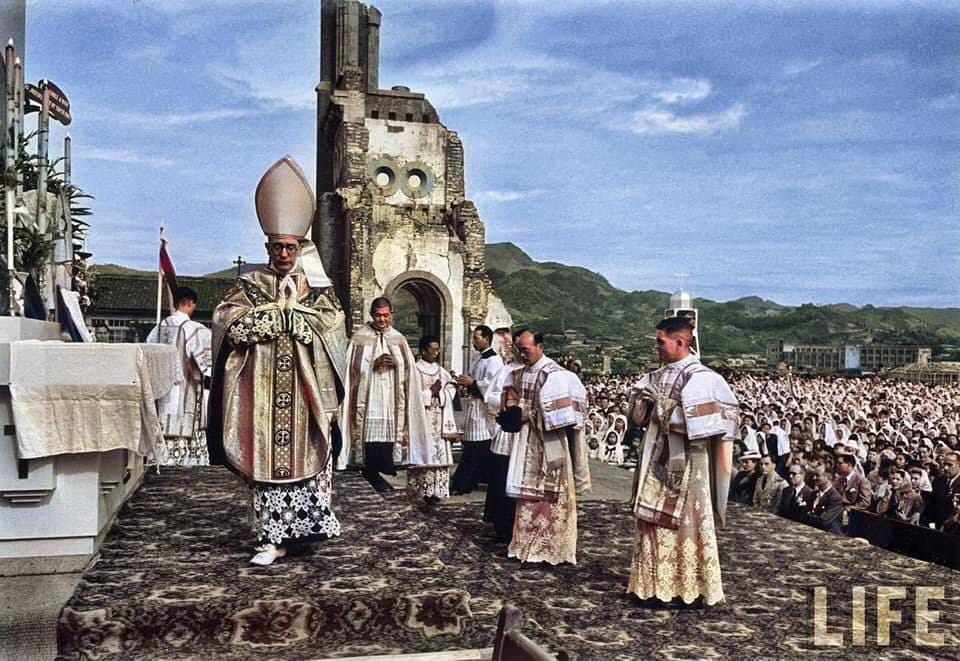
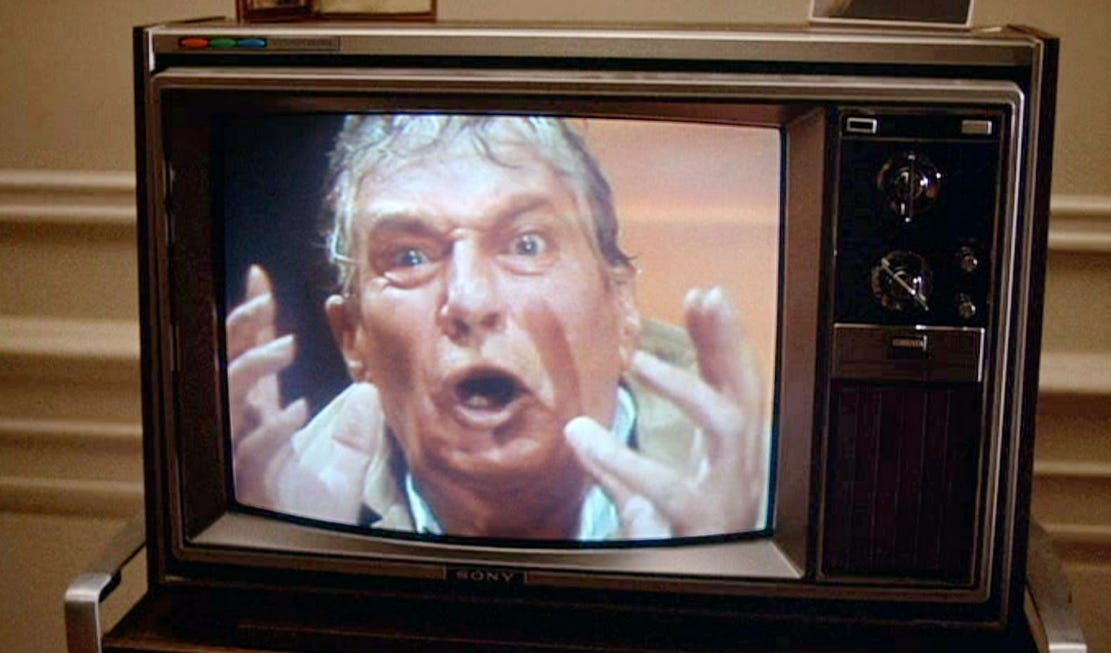
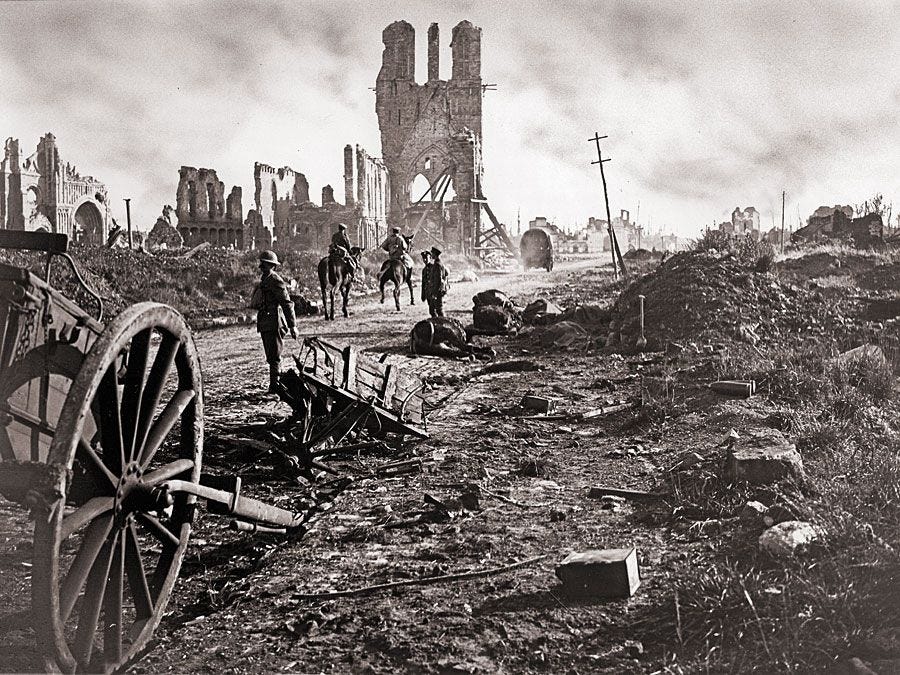
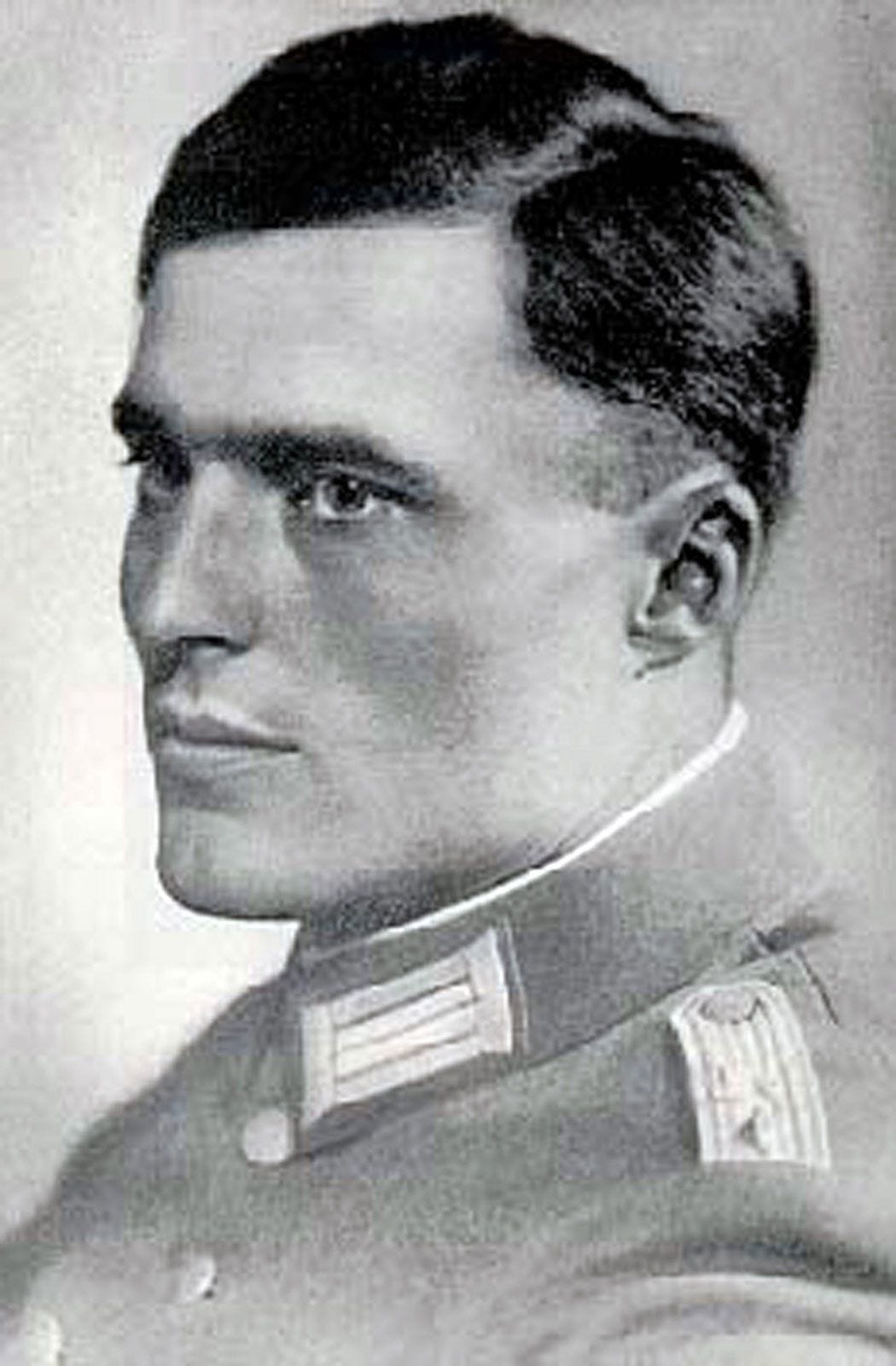
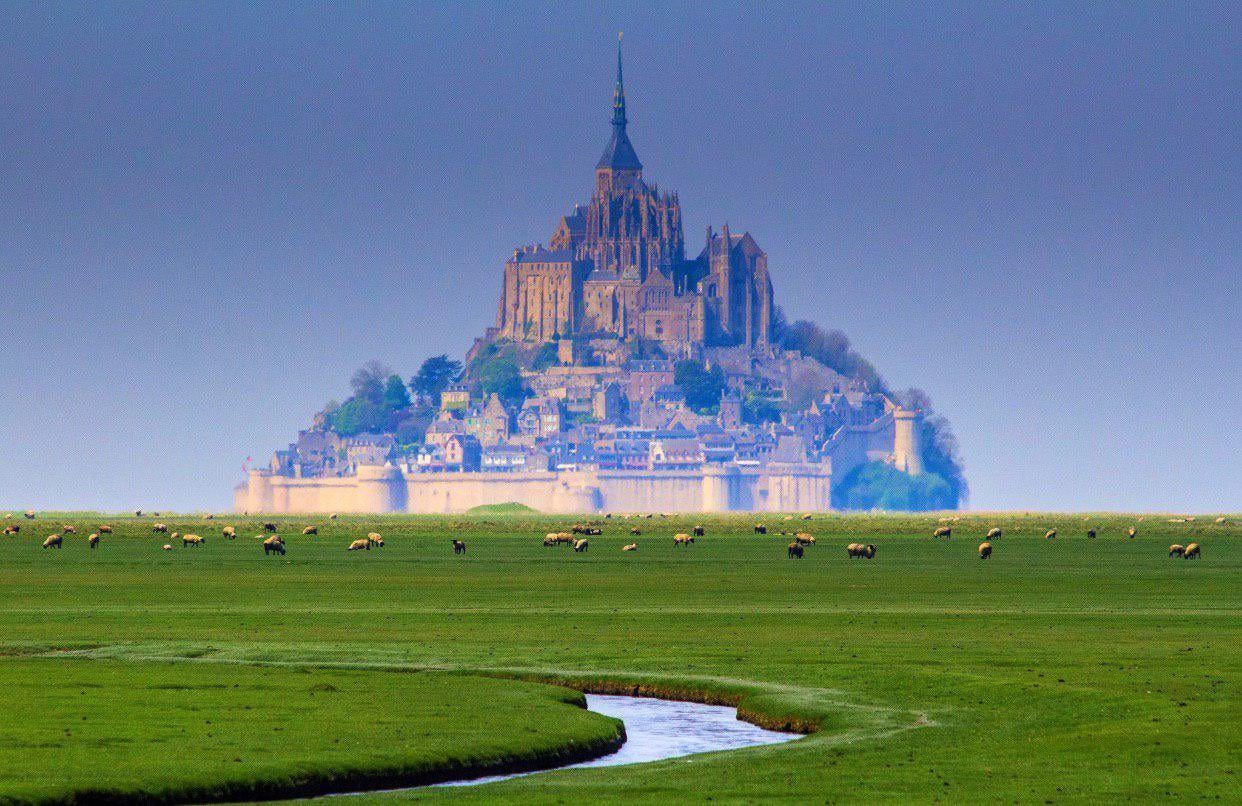
I really enjoy your work, Sanfed; and I am more than happy to slowly become Jungerpilled. Thanks for writing this piece.
Nice picture of Mont-Saint-Michel Abbey. I have visited this place. It is very beautiful. As a tourist, I have often visited churches and cathedrals because of their beauty. When I visited the Cathedral of Siena in Italy, I felt bad for the first time to visit such a holy place as a tourist. I wondered what I would feel like to attend a church service in this magnificent building. Maybe this was my first step to a resacralization.